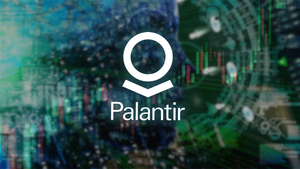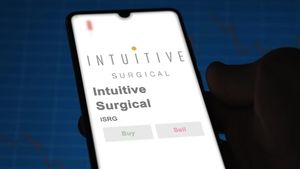The Rise of Digital Learning in Finance
The way finance education is delivered has transformed dramatically over the past two decades. Once confined to lecture halls, textbooks, and physical classrooms, finance education was historically accessible only to those who could attend elite universities or afford costly professional training programs. This exclusivity perpetuated global inequality, leaving many without the skills to navigate financial systems or participate in global markets.
The advent of digital learning, however, has radically reshaped this landscape. Technology-driven platforms now offer finance education that is flexible, affordable, and accessible across borders. From mobile-first apps that teach personal budgeting in rural villages to AI-powered programs that help professionals master algorithmic trading, digital learning has created opportunities for people at every level of financial engagement.
As Timothy Allen, Sr. Corporate Investigator at Oberheiden P.C., noted, “The evolution of digital finance education is not just about convenience; it’s about creating transparency and access in areas where financial knowledge was once deliberately gated.” His insight underscores how this shift is more than just technological, it is structural and cultural.
In an era where economic participation requires at least a basic understanding of finance, the democratization of learning represents a critical step forward. Digital learning models are ensuring that finance education is no longer a privilege of the few but a resource available to anyone with the motivation to learn.
Democratizing Access to Finance Education
One of the most important contributions of digital learning is its role in leveling the playing field. Traditional finance education has long been defined by barriers: cost, geography, admissions standards, and institutional exclusivity. A seat in a top MBA program at Harvard or Wharton could cost over $150,000, while relocation and living expenses add further burdens. For most of the world’s population, this has been an unattainable path.
Today, MOOCs (Massive Open Online Courses) and online programs have dismantled many of these barriers. Platforms such as Coursera, edX, FutureLearn, and Udacity provide access to finance courses from Ivy League universities, often for free or at nominal fees. Learners who once had no access to elite institutions now benefit from the same material that top finance students study. For example, Yale’s “Financial Markets” course taught by Nobel laureate Robert Shiller has reached over a million students worldwide through Coursera, an achievement impossible in traditional classroom models.
As Karen Noryko, Career Content Director at Jobtrees, explained, “Digital platforms are helping to eliminate the privilege gap by allowing anyone, regardless of background, to learn the financial skills once reserved for an elite few.” This democratization of access is shaping the future of global financial literacy.
The Role of Technology in Enhancing Learning Experiences
While accessibility is a breakthrough, what makes digital learning truly revolutionary is the way technology enhances the learning process. Traditional finance education often relied on theoretical models, heavy textbooks, and rote memorization, leaving learners disconnected from real-world financial practice. Today’s digital platforms, however, are defined by interactivity, adaptability, and immersion.
- Simulations and Virtual Trading: Stock market simulators such as MarketWatch or Investopedia’s simulator allow learners to trade virtual portfolios, experiment with strategies, and understand market dynamics without financial risk.
- AI-Powered Personalization: Adaptive platforms analyze performance data and recommend tailored lessons, making education individualized.
- Gamification: Finance learning apps now use badges, leaderboards, and challenges to motivate learners.
- Virtual and Augmented Reality: Students can step into virtual trading floors or use AR dashboards to grasp complex investment concepts.
Leo Baker, Chief Technology Officer at Vendorland, emphasized, “Technology in finance learning should not only deliver content but create experiences. When students practice through simulations or gamified modules, they learn to think like real-world financial professionals.”
Bridging Global Gaps Through Mobile Learning
Mobile technology is perhaps the single greatest enabler of finance education in regions with limited infrastructure. While broadband connectivity remains uneven, smartphones have become ubiquitous, even in rural and low-income communities. This has opened the door for mobile-first finance learning solutions that reach populations previously excluded from formal education systems.
In sub-Saharan Africa, where traditional banking penetration remains low, mobile-first education initiatives are driving financial inclusion. Apps like M-Pesa in Kenya not only offer mobile banking services but also integrate financial literacy tools that teach users how to save, budget, and invest. Similarly, in South Asia, mobile-based platforms like Zerodha Varsity provide modular finance lessons for retail investors participating in booming stock markets.
Eduard Tupikov, CMO at Finelo, highlighted, “The smartphone has become the classroom for millions. For small business owners and entrepreneurs, finance lessons delivered on mobile devices mean the difference between survival and growth.”
Empowering Professionals Through Digital Certifications
While mobile apps and free courses are critical for general literacy, professional finance demands deeper specialization. Here, digital certifications and online professional development programs have become transformative.
Certifications from the CFA Institute, GARP, and ACCA have long been recognized globally, but the ability to prepare for and complete such certifications online has made them far more accessible. Programs now offer remote exam options, adaptive practice tools, and full digital resource libraries.
Specialized platforms like Wall Street Prep, CFI (Corporate Finance Institute), and Financial Edge also provide professional-grade training in areas such as financial modeling, investment banking, and private equity.
Dan Close, Founder and CEO of BuyingHomes.com, explained, “Online certifications give professionals in small towns and developing countries the same credentials as those in New York or London. It’s the ultimate equalizer in career advancement.”
Overcoming Language and Cultural Barriers
Finance education must do more than teach universal principles, it must adapt to local realities. For example, while U.S. learners may study credit cards and stock market investments, learners in parts of Africa may need to focus on mobile banking and microfinance. Digital learning models excel at tailoring content to diverse cultural contexts.
Multilingual subtitles, AI-driven translations, and regionalized case studies make it easier for learners to grasp complex ideas.
Alex L., Founder of StudyX, remarked, “Localization is the missing piece in finance education. A student in Kenya learning about savings through local examples is more empowered than simply memorizing Western financial models.”
Challenges in Digital Finance Education
While digital learning models have made finance education accessible, challenges remain.
- Digital Divide: Access to devices and reliable internet remains unequal, particularly in rural and low-income areas.
- Credibility and Recognition: Not all online courses carry equal weight.
- Overload of Information: Learners can be overwhelmed by the abundance of content online.
- Engagement and Retention: Many learners struggle to stay engaged without instructor guidance.
These challenges highlight the importance of ongoing innovation and partnerships between governments, edtech firms, and financial institutions to strengthen the ecosystem.
Digital Learning and Compliance Training
Compliance has always been one of the most challenging areas in finance. Traditional classroom sessions often struggled to keep pace with regulatory shifts, leaving gaps in knowledge that could expose firms to risk. Digital platforms, however, allow compliance content to be updated in real time.
Htet Aung Shine, Co-Founder of NextClinic, emphasizes, “Compliance learning isn’t just about ticking boxes, it’s about creating a culture where employees have practical, accessible tools to make the right decisions in complex regulatory environments.”
Career Transitions Made Easier with Online Learning
For many professionals, retraining required years of formal education or costly certifications. Today, digital platforms allow individuals to reskill on their own schedule, giving them an accessible path into finance careers.
John Beebe, CEO at Classic Car Deals, observes, “Career transitions are no longer limited by geography or cost. With digital finance education, someone from a non-financial background can build skills incrementally and move into new roles without hitting the reset button on their careers.”
Building Trust in Online Credentials
As online learning grows, one concern is how employers perceive digital certifications. To address this, many platforms are integrating blockchain for credential verification.
Ernestas Duzinas, Founder of GoTranscript Inc, explains, “The future of education credentials lies in digital verification. Blockchain-based certificates mean employers can instantly validate achievements, which builds trust and levels the playing field for learners worldwide.”
Collaboration Between Academia and Industry
The gap between what universities teach and what businesses need has long been a concern. Digital platforms are increasingly bridging this gap by facilitating collaborations between academic institutions and industry leaders.
Chris Muktar, Founder of Userbird, points out, “When universities partner with fintech firms and digital learning platforms, they ensure that courses evolve in real time with industry needs. This collaboration produces graduates who are not just knowledgeable but also workplace-ready.”
Digital Learning for Entrepreneurs and Small Business Owners
Financial literacy is critical for entrepreneurs who manage cash flow and investments.
Maria Sin, Founder of Purebred Kitties, notes, “Entrepreneurs wear many hats, and managing finances is often the toughest one. Digital learning platforms give business owners on-demand knowledge so they can make smarter decisions without needing an MBA.”
Gamification and Motivation in Finance Education
Finance, with its technical concepts, can feel overwhelming. Gamification makes learning interactive and enjoyable.
Magnus Larsen, Head of Marketing at Forbrukerguiden, highlights, “Gamification taps into human psychology. When learners see progress, rewards, and competition, they engage more deeply, even with subjects as complex as finance.”
Bridging the Gap Between Theory and Practice
Traditional education overemphasized theory, often leaving learners unprepared. Simulators and modeling tools are closing this gap.
Kyle R Smith, Director of Boost Promotional Products, explains, “Practical learning tools close the distance between classroom theory and industry practice. Finance education becomes much more effective when learners can test their ideas in simulations before applying them in the real world.”
The Role of Digital Learning in Leadership Development
Modern platforms now offer courses blending financial acumen with leadership training.
LJ Tabango, Founder of Leak Experts USA, remarks, “Strong financial leaders are not just number-crunchers, they are visionaries who connect finance to strategy. Digital platforms now combine leadership training with financial modules, creating well-rounded executives ready for modern challenges.”
The Future of Global Financial Literacy Campaigns
Financial literacy remains uneven worldwide. Digital platforms are becoming the backbone of large-scale literacy campaigns.
Stuart Rogers, CEO of International Outsourcing Group , explains, “Digital campaigns allow financial literacy to scale globally. By using search-driven platforms and localized content, organizations can reach millions who would otherwise remain excluded from formal finance education.”
Digital Learning as a Catalyst for Innovation in Finance
Digital learning doesn’t just educate, it sparks innovation across the finance sector.
Michael Jensen, CMO at Forsikringssiden, affirms, “Digital learning fuels innovation by empowering professionals to experiment with new tools and models. The more people understand finance, the more creative solutions they bring to the industry.”
Migration and Finance Education for Expats
Dean Fankhauder, Founder of Movingto, explained, “For expats and migrants, digital finance education is a lifeline. It helps them navigate new tax systems, banking requirements, and investment opportunities abroad.”
The Future of Finance Education in a Digital World
The future of finance education will be shaped by integration with emerging technologies and global trends.
- AI and Personalization: Adaptive learning will create individualized pathways.
- Blockchain Credentialing: Certifications will be tamper-proof and universally valid.
- Immersive Learning: VR will simulate trading floors and negotiations.
- Global Collaboration: Cross-border learning will prepare professionals for global industries.
- Focus on New Finance: Courses on cryptocurrency, DeFi, and ESG will grow.
Conclusion: A New Era of Financial Learning
The world is entering a new era where finance education is no longer defined by exclusivity but by accessibility, adaptability, and inclusivity. Digital learning models have broken down barriers of geography, cost, and culture, enabling millions to engage with financial knowledge at every level, from personal savings to advanced investment strategies, shares Beth Rivera, CEO of Best Financial Planners.
This transformation is more than educational, it is economic and social. By equipping individuals with financial knowledge, digital learning fosters empowerment, drives entrepreneurship, and strengthens global economies. The classroom is no longer a physical space; it is a smartphone in a rural village, a laptop in a corporate office, or a VR headset simulating Wall Street.
Finance education, once the privilege of a few, has become the right of many. And in this shift lies the potential to create a more financially literate, equitable, and resilient world.





